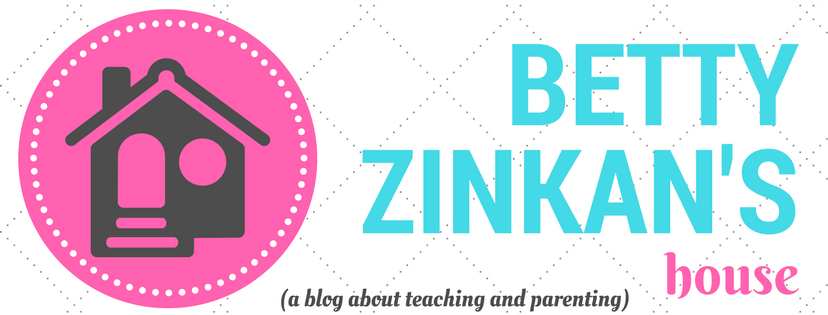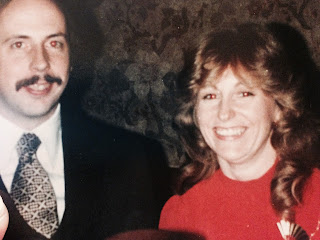“Between stimulus and response there is a space. In that space is our power to choose our response. In our response lies our growth and our freedom.” -Victor Frankl
Another mama friend and I were pushing our strollers through the Japanese garden at the Botanical Garden. We wondered out loud about the things we fear as parents--sleepless nights, public, inconsolable meltdowns, any number of perceived maternal failures--and how we could possibly be more "zen" in our parenting. I mean, isn't "zen" allowing things to be without attaching emotion or response to them? Meaning, all things in the universe are just there. They have no inherent meaning until we attach meaning to them. Example, in verse:
Another mama friend and I were pushing our strollers through the Japanese garden at the Botanical Garden. We wondered out loud about the things we fear as parents--sleepless nights, public, inconsolable meltdowns, any number of perceived maternal failures--and how we could possibly be more "zen" in our parenting. I mean, isn't "zen" allowing things to be without attaching emotion or response to them? Meaning, all things in the universe are just there. They have no inherent meaning until we attach meaning to them. Example, in verse:
Look there. The clock says 1:32 a.m.
The baby is wailing.
I reinsert the pacifier.
Silence.
Retreat to bed.
Pull up covers.
Close eyes.
The baby is wailing.
Look there. The clock says 1:37 a.m.
Emotional response? What emotional response? There's no reason I should be emotional at this moment!!
The wise old Gavin Rossdale of the most distinguished Bush was correct when he musically philosophized (in his super-attractive gravelly voice), "Everything zen/ I don't think so." (As an aside, he also said in the same song, "I don't believe that Elvis is dead." This discredits him a bit, but no matter.) The point is, it is ridiculously hard to experience life with your own flesh and blood and not be deeply, inarguably emotionally responsive. Baby wakes for the fifth time tonight, you watch the numbers on the clock tick by, your internal clock says sleepytime, your external clock (ahem, baby) says wake time, and you start fearing the moment you actually have to get up for the day armed with fewer and fewer minutes of rest. Popular emotional responses to this are exasperated tapping of your partner resulting in a harshly whispered argument, tearful rocking of a tearful baby, oft-uttered curse word(s), or the wailing and gnashing of teeth. Anguish!
It seems like babyhood inspires a big ol' stress monster to wander into your sleep-deprived noggin and take up residence for the next couple of decades. I find it easy to commiserate with other mamas about frustrating baby situations. I can coach myself, especially with the help of some girlfriends and Riesling, in responding more healthily to an external factor, such as my children's behavior. However, what if my most stressful parenting issue has very little to do with my kids at all? The stress monster and I have engaged in many-a sword fight, but no battle inspires as many wounds as the one that takes place in front of the mirror postpartum.
Here are things that produce an emotional trigger in me: ripply stretch marks swirling around my abdomen. A belly button that went from being surprised [o] to being sad [(]. Skin hanging limply over the elastic waistband of my shorts. A size number that's bigger than what I already decided was too big. Creases or dimples in once-smooth surfaces. The term "baby weight." Weight numbers. Tugging on clothes that used to fit. Full body photos. Full body photos from 20 lbs ago. Other hot moms.These are things that cause a big, fat stress response in me.
I wonder what it would be like to live one whole day and not care about these things. To be zen about it. I wonder if I would believe myself if I said, "These things are simply these things. I don't have to be ______ (sad, angry, ashamed--fill in emotion word here) about them." Because it's true. But, I bring ALL the feels (but, like, mostly the bad ones) to the mirror every day. Probably every day since I was about ten years old, actually. How does one dig oneself out of a body-shaming hole one dug oneself? How does one become zen about one's lumps and bumps?
I have no idea. I guess as a woman, my appearance has always been integral to my identity and ultimately my perception of how lovable I am. Family members always called me "cute," until that day in fifth grade when my grandpa told me I had "fat arms." And then when I went through puberty one summer, I shed what was referred to as my "baby fat" and my dance teacher couldn't stop talking about how good I looked and that she didn't even recognize me. And then boys were obsessed with boobs in junior high, ergo so were all the girls (to stuff or not to stuff?). Some boy at camp said I had "nice tits" (by the way, I had "no tits" at the time). On and on and on, until in college and beyond, social media became both the instigator and antithesis of loving your own shape. Just below a post catering to the trends in body positivity will be someone's selfie that they spent at least five minutes perfecting--head tilted just so, slightly downward angle, right eyebrow slightly raised, lips slightly pouted, hand on hip, one leg slightly in front of the other. Photography tricks. I know this because I've done it. I cover up not-beautiful feelings with carefully controlled beauty. However, controlling how pregnancy impacts your body is damn near impossible. A body out of control breeds stress when below the surface, feeling unattractive means feeling unloved.
So, is it possible to let go of beliefs that have been anchored in my brain for most of my life? Can I really be zen about my postpartum physical self? Someone more experienced in zen philosophy might suggest I start with allowing my body to just be my body, allowing changes in my body to just be changes without emotional meaning tagging along. My body has changed because it grew three babies. My body will change again. A stretch mark is a stretch mark. Size is what it is. My body is my body. Can I make these statements and avoid mind math that states size + shape + weight = self-worth? The route to changing my emotional response is by changing my thought process, I think. Instead of "I can't button these jeans, so I'll be ugly the rest of my life," maybe I can say this: "I can't button these jeans because I just had an eight pound baby (high five, vagina!*)"
(*Don't high five your vagina.)
It would take the most concentrated, deliberate effort to catch myself in the space between stimulus and response, between mirror and horror, to nudge myself along a different path. One that's more zen and less self-deprecating. To simply let my body be, and to be free to determine a new response that is less emotional either way (which means not forcing myself to respond with a positive emotion either). I'm certain I could, if I really dedicated myself, acknowledge my body and all that it's been through without immediately determining it's not good enough. It might take some naked yoga and a lot of practice maybe. (Ok, scratch the naked yoga. Totally not ready for that. Yet.) Say it: my body is just my body. Repeat. Zen.
So let's say I become an almighty body zen master. That's all well and good, but what's most disturbing to me is that looking back, almost as far back as I remember, I've been dissatisfied with my body. Body image became this treacherous mountain before me that the world taught me to conjure out of thin air. I mean, my five month old doesn't have body issues as far as I can tell. My eight year old, on the other hand, might already have some body image associations that I may or may not have accidentally reinforced when giving my seal of approval (or disapproval) on her outfit choices, for example. I mean, I try hard to emanate body positivity to her. I really do. I resist in every way possible sharing with her how self-conscious I am about my body. I don't talk with her about losing weight. I also try not to comment on her body, even with potential compliments ("You're so skinny! muscular! physically beautiful!"). I want to avoid at all costs my daughter thinking that how she looks physically is key to her success. If my body is the first thing I think about when I wake up in the morning, then I can't afford to just be zen about my body. I have to focus on being zen about my children's bodies, too, because before I know it, I've taught them how to struggle.
I need the world to be zen about the female body, honestly. I would like to see less emphasis on physical beauty, in general, which includes campaigns in which women of all shapes and sizes are featured in their underwear so that we can all feel "okay" about our imperfect bodies. I can appreciate the insinuation that models are not Every Woman and we should celebrate this. However, we don't project a similar physical image of men on TV or in magazines so that they feel more secure. Why do we have to emphasize what the female body looks like at all? Let's make our bodies not a thing. Let's allow every woman the freedom to decide what she'll do with the space between her reflection and her heart. We'll have to work hard together to do that, to be zen mamas. But I think we're up for the challenge. We have to be, for all of us.







